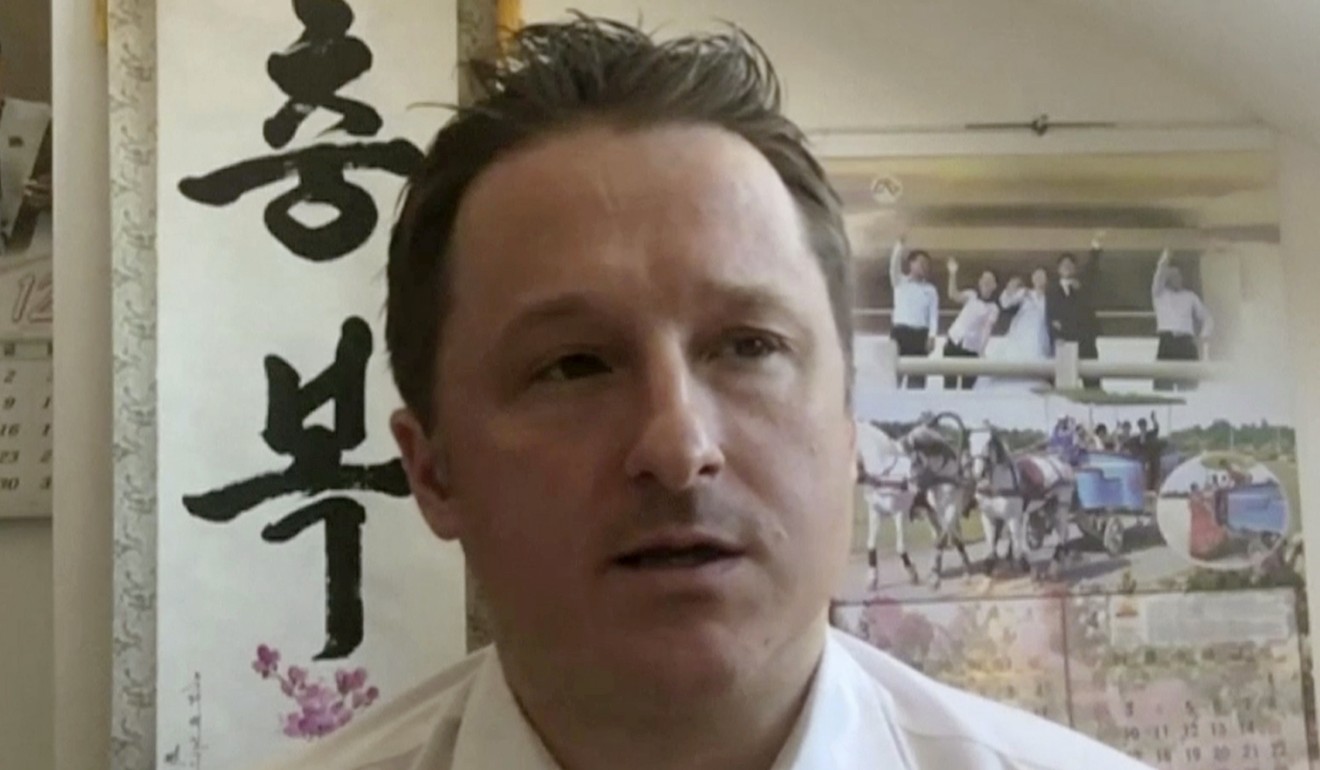
China-based diplomats warn case of detained Canadians Kovrig and Spavor is ‘Sword of Damocles’ hanging over their heads
- As pair face 100th day in detention, diplomatic staff warn of implications of case amid concerns China is undermining principle of diplomatic immunity
- Embassy staff now fear returning to China without diplomatic protection as concerns grow Michael Kovrig will be interrogated about his work for Canada’s ministry of foreign affairs
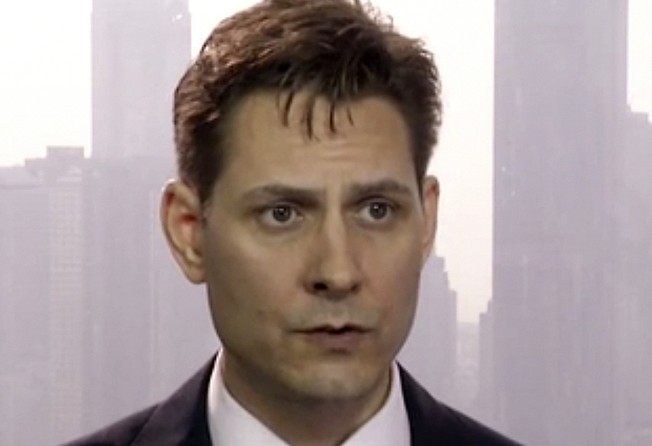
Tuesday will mark the 100th day since two Canadians detained in China have had a proper night’s sleep. Since their arrest last December, they are likely to have been kept largely in the dark about the charges against them – but the lights in their cells will have stayed on day and night.
But the detention of the former Canadian diplomat Michael Kovrig – held along with his fellow Canadian Michael Spavor on December 10 – has shocked other diplomats stationed in China, who have been exploring legal game plans to protect themselves should they ever find themselves in the same situation.
“It’s a sword of Damocles hanging over all diplomats. We are very concerned. Everyone is talking about it,” said one diplomat working in Beijing, adding that many fear returning to China on anything other than a diplomatic passport in future.
Despite attempts by Beijing to separate the case from Kovrig’s work with Canada’s foreign service, many diplomatic staff are worried they could one day face a similar predicament.
Diplomats and observers have linked their case with that of Sabrina Meng Wanzhou, Huawei’s chief financial officer, who was arrested in Vancouver on December 1.

Meng, the daughter of the tech giant’s founder Ren Zhengfei, is wanted in the US on fraud charges relating to alleged breaches of sanctions on Iran.
China has denied that the Canadians were held in retaliation for Meng’s arrest, although Canada’s Prime Minister Justin Trudeau has called their arrests “politically motivated”.
Trudeau has also said Kovrig should be given diplomatic immunity.
Kovrig was on leave from the Canadian foreign ministry during the time of his arrest and was working for the international non-governmental organisation Crisis Group, but there are fears that he is also being interrogated about his diplomatic work.
China denies that the Vienna Convention on Diplomatic Relations, which enshrines the principle of immunity into international law, should apply in this case.
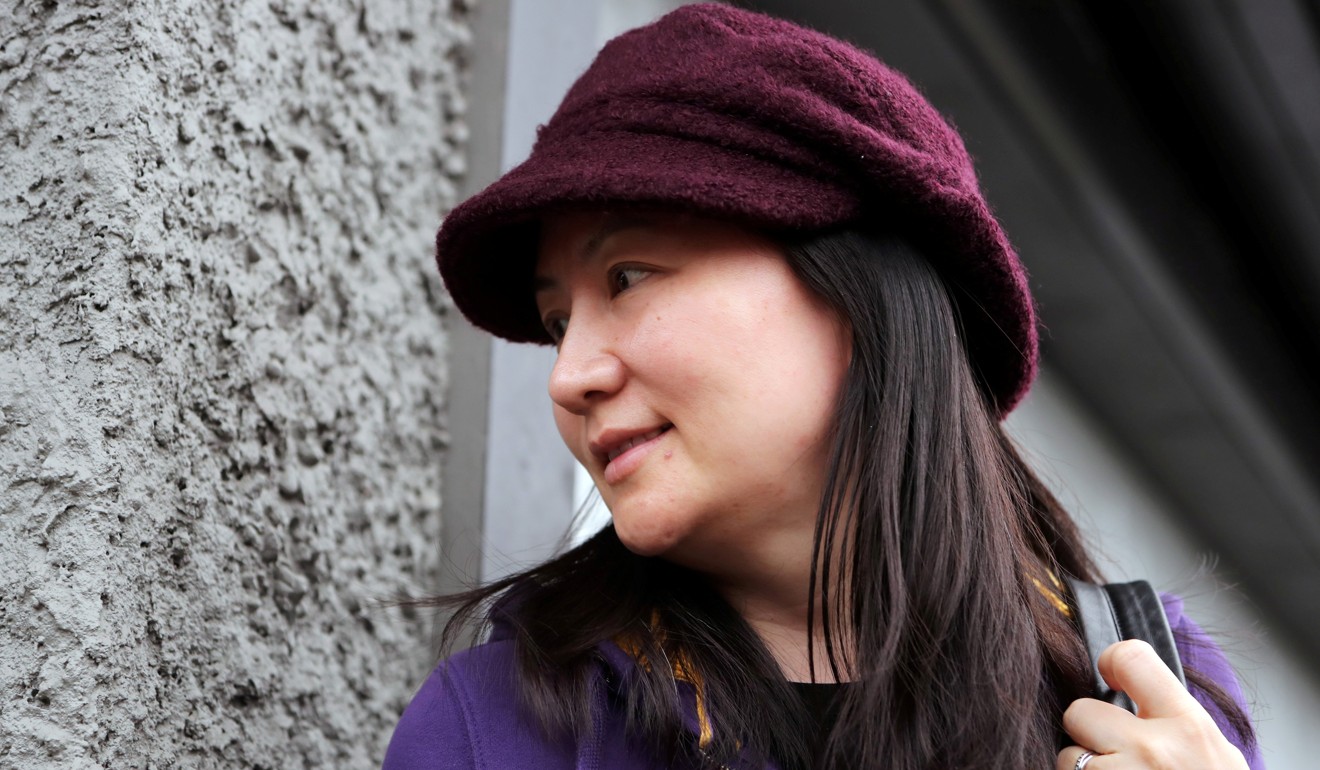
Beijing said that Kovrig was not serving as a diplomat at the time of his arrest, and was in China on a regular passport and business visa.
“No matter how you look at it, Michael Kovrig does not have diplomatic immunity under the Vienna Convention,” said foreign ministry spokesperson Hua Chunying in January.
Kovrig has been accused of spying and stealing state secrets – allegations that focused on his work for Crisis Group, which he joined in early 2017.
The official state news agency Xinhua said he was accused of “severely violating” Chinese law, citing unnamed Chinese officials.
The report also claimed that Spavor, a businessman who arranged visits to North Korea, acted as a source of intelligence for Kovrig.
Diplomats and watchdog groups remain concerned that Kovrig is nonetheless being questioned about work he did as a diplomat, and fear that others could face similar problems in future.
“As soon as he was arrested, we began exploring legal action we could take to protect ourselves,” a second diplomat working in Beijing said, speaking on condition of anonymity.
“We are still concerned that China may disregard the Vienna Convention, and hold its national law above international law.”
Amnesty International said China’s detention of Kovrig and Spavor violated the principles of international law, including their right to access of a lawyer of their choice.
Without such protections, both men are exposed to a high risk of torture or other ill-treatment, according to Amnesty researcher Patrick Poon.
He also warned that the charge of stealing state secrets was “obscure and arbitrary and has often been misused” and said it was alarming that China would abuse such a law and defy international standards.
Kovrig’s employer, Crisis Group, has repeatedly called for his immediate release, and spokesman Karim Lebhour described his detention as “baseless”.
“Michael’s arbitrary detention has been a huge shock to all of us at Crisis Group and to many people around the world who wish to constructively engage with China,” Lebhour said.
As Meng awaits her next court date on May 8 on bail at her US$4.2 million mansion in Vancouver, Kovrig and Spavor are subject to regular interrogations while being held under “residential surveillance” at unknown locations, believed to be in Beijing and Liaoning province respectively.
The two Canadians have so far been allowed four half-hour meetings with consular staff, one each month, which are held away from their place of detention.
Neither has had access to a lawyer.
The Canadian government has continued to call for their immediate release.
Meanwhile Meng’s lawyers have raised “serious concerns” about the political character and motivation of the case against her, charges that have been echoed by the Chinese government, which continues to push for her release.
Earlier this month Foreign Minister Wang Yi, who has described the allegations against her as “groundless provocations”, praised Huawei’s decision to sue the United States, which has banned the firm from work on its 5G network and urged other countries to follow suit.
The extradition process against her could take several years to complete and any decision to send her to the US to stand trial will ultimately need to be approved by the Canadian Minister of Justice.
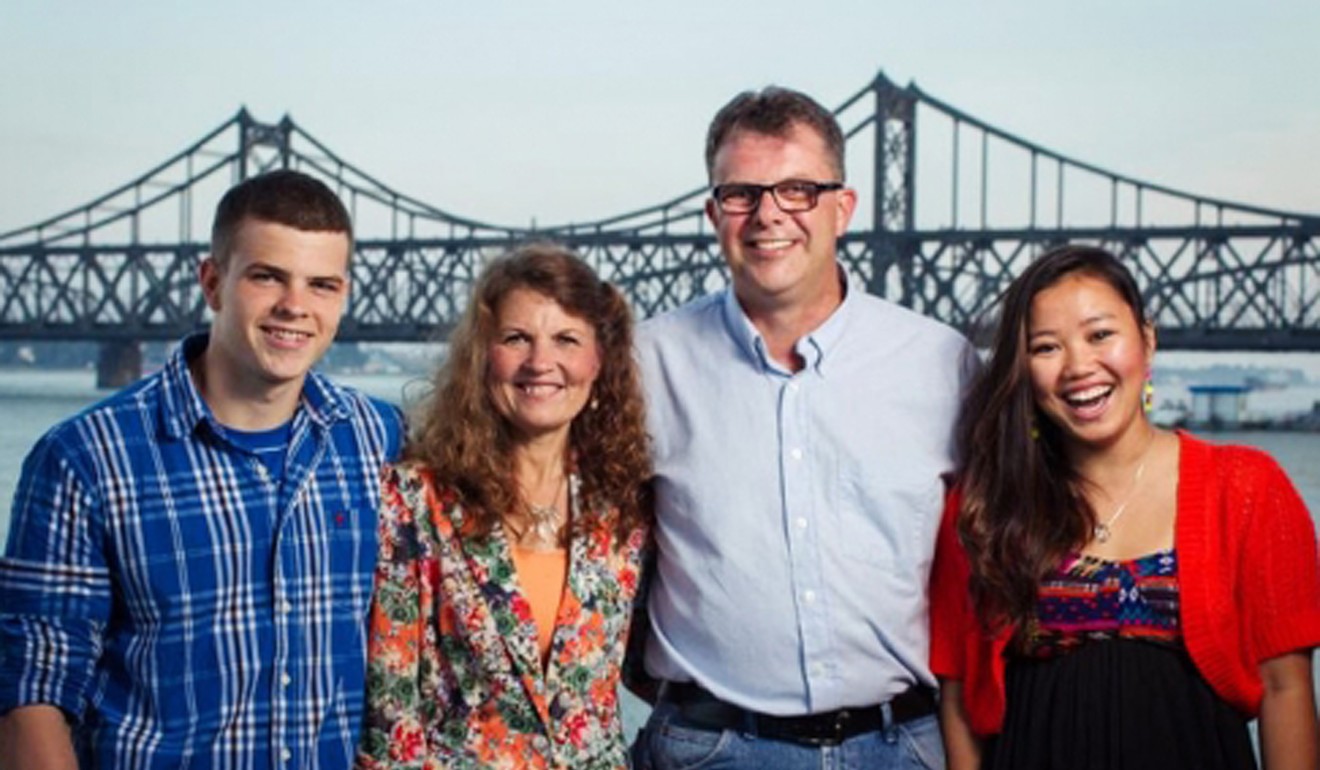
A number of international media outlets have quoted sources who told them that the two Canadians were being kept in cells where the lights are kept on 24 hours a day – conditions reported by a number of previous Chinese detainees.
The parallels go further in the case of two other Canadians, Julia and Kevin Garratt, who were detained in 2014 on spying charges in a case seen as retaliation for the arrest of Chinese businessman Su Bin in Canada.
Su declined to fight extradition from Canada to America, where in 2016 he was sentenced to nearly four years in jail after pleading guilty to attempting to sell stolen information about military aircraft to Chinese companies.
But the Garratts, Christian aid workers who had lived in China for several decades, said they had not been told about Su’s case during their time in detention – six months in Julia’s case and over two years for Kevin.
“We never really knew what the case was about, and I didn’t even know the name Su Bin until after,” Kevin Garratt told the South China Morning Post recently.
“It’s unfortunate that people, innocent people, get caught up in these kinds of situations that have nothing to do with anything they’ve done. And it’s just a very sad way that China uses innocent people as bargaining chips.”
The couple described being locked in separate rooms in their book, Two Tears on the Window, where the lights were left on at all hours of the day and two guards sat watch constantly.
While they were not physically abused or tortured, they were subjected to up to six hours of interrogations, where security officers demanded information about their alleged spying.
They were questioned about everything from visitors to a coffee shop they ran near the border with North Korea to photos they had taken about well-known tourist sites such as Tiananmen Square.
To cope, the couple said they prayed, read the Bible and the few other materials they were given. Julia also sketched and pretended to play the piano, while Kevin sought to create a routine, even if it was constantly interrupted by interrogations.
When they met with consular officials, they were warned not to discuss their case or their detention location, or else there would be no more visits.
“You try to make a new life for yourself in that one room,” Julia said.
“I imagine that these two Michaels also are experiencing the same kind of situation. I think the uncertainty about what the real issue is and the long time alone is extremely gruelling and difficult, and obviously, there’s a huge human cost to that type of thing, especially when you really haven’t committed a crime.”
It was close to a year after Kevin’s detention that he was granted access to a Chinese lawyer.
After 775 days, following Su Bin’s extradition to the US and his guilty plea, Kevin was finally released.
“Our hearts really break for their families,” Julia said of Kovrig and Spavor. “The families wake up every day wondering if those people are OK, and have to wait a month to find out anything.”
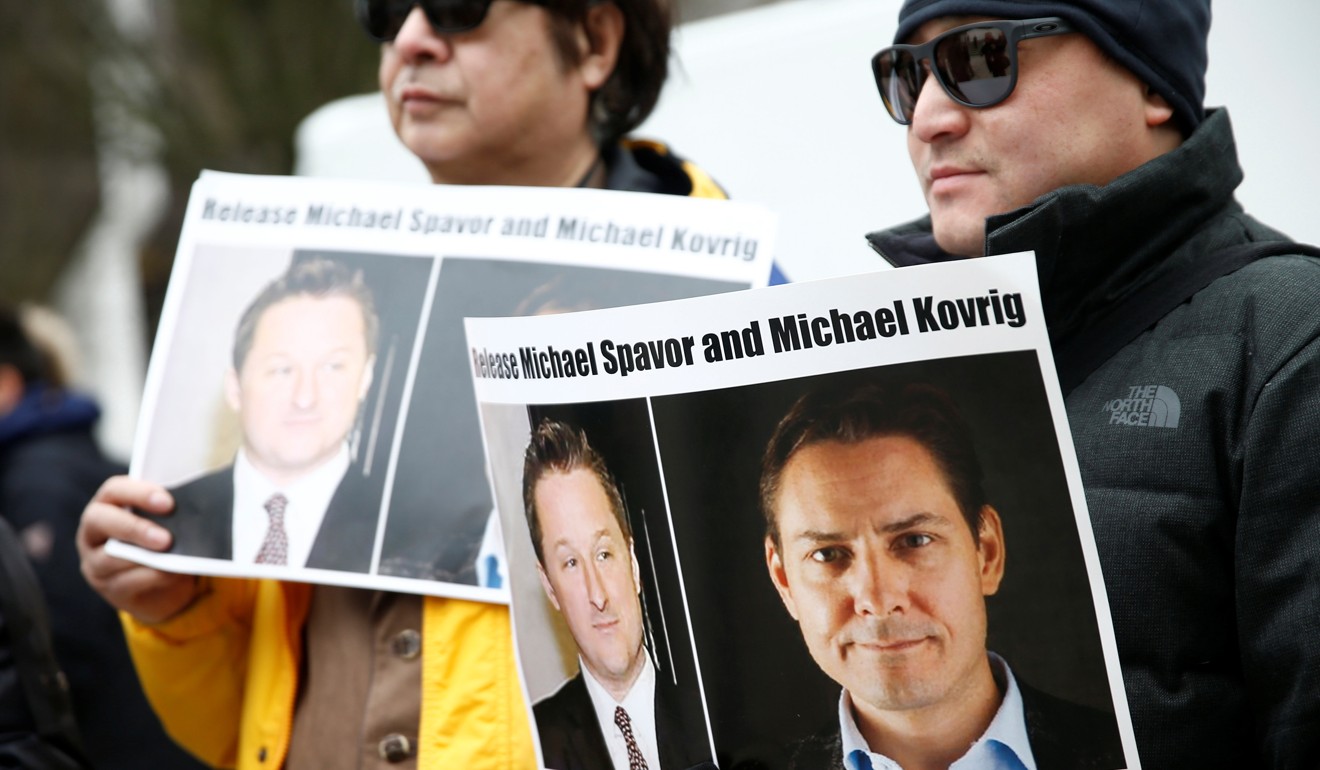
The couple said they were “not angry, but extremely disappointed” that their decades in China ended the way they did.
“We love the country and the people,” Julia said. “Our experience didn’t create the kind of anger and anti-China sentiment which we started hearing from other people.”
China scholars and diplomats echo her sentiment, some 200 of whom signed an open letter to Chinese President Xi Jinping in mid-January demanding the release of the two Canadians.
They argued that their detentions may make many become more cautious about travelling and working in China, leading to “less dialogue and greater distrust”.
“This situation is bad for China, too. I believe China needs us, she needs a bridge to the West and the world,” the first diplomatic source in Beijing said.
“Most of our job is to explain China to the outsiders. And we love China, even though not necessarily the same way the Communist Party wants us to.”